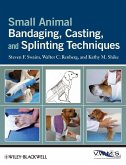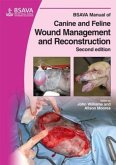Practical Guide to Equine Colic takes a step-by-step clinical approach to the medical management of this common condition. Covering colic management and treatment from the veterinarian's first involvement through referral, surgical intervention, and long-term recovery, the book offers practical advice on managing a colic case. Designed for easy navigation, chapters are brief and fully cross-referenced, allowing the reader to quickly find and apply information in the practice setting.
The book incorporates key points, checklists, clinical tips, step-by-step illustrations, and case examples, emphasizing clinically relevant information throughout and referencing the most applicable and up-to-date literature. A companion website offers clinical cases, quizzes, and videos at www.wiley.com/go/southwood. Practical Guide to Equine Colic is an ideal resource for daily use in treating horses with colic, appealing to students, equine practitioners, and specialists alike.
The book incorporates key points, checklists, clinical tips, step-by-step illustrations, and case examples, emphasizing clinically relevant information throughout and referencing the most applicable and up-to-date literature. A companion website offers clinical cases, quizzes, and videos at www.wiley.com/go/southwood. Practical Guide to Equine Colic is an ideal resource for daily use in treating horses with colic, appealing to students, equine practitioners, and specialists alike.








